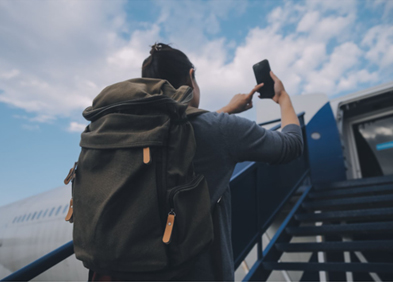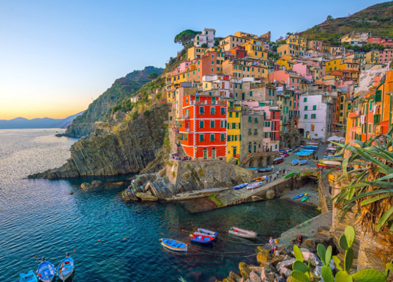According to the UN, France is the most popular tourist spot in the world, with tens of millions of people visiting each year. Whether you're dreaming of strolling through the romantic Parisian streets or indulging in the exquisite flavors of French cuisine, there are a few things you should keep in mind before embarking on your journey. Keep reading to discover what to know before traveling to France!
Exploring France's Diverse Regions: A Primer on Must-See Destinations
Planning a trip abroad can be overwhelming, especially when you’re only going to be staying for a week or two. To help you make the most of your limited vacation time, we’ve compiled a list of a few of the most popular places in France and why you should consider adding them to your itinerary:
- Paris: Paris, also known as the City of Light, is the bustling capital of France and one of the most iconic cities in the world. It has been featured in several well-known Hollywood films, including The Da Vinci Code, The Devil Wears Prada, and Inception, and it is home to many famous landmarks like the Eiffel Tower, the Arc de Triomphe, the Notre Dame Cathedral, the Louvre Museum, and the picturesque Seine River.
- Versailles: Just a short train ride from Paris, the Palace of Versailles is a masterpiece of French Baroque architecture and a symbol of royal extravagance. Explore the opulent palace interiors, stroll through the meticulously landscaped gardens, and marvel at the magnificent Hall of Mirrors.
- Bordeaux: Bordeaux is often referred to as the wine capital of the world thanks to its flourishing vineyards and esteemed wine châteaux. In addition to its lavish tasting tours, it also offers a thriving cultural scene with plenty of museums, theaters, and galleries.
- French Riviera (Côte d'Azur): Here, you can feel the warm sunshine, the wind in your hair, and the sand between your toes while relaxing along the beautiful Mediterranean coastline. Not a beach person? No worries! You can still experience the chic boutiques and vibrant nightlife of Nice, Cannes, Monaco, and more.
- Provence: Located in southeastern France, Provence is renowned for its stunning landscapes, including lush lavender fields and olive groves. The region's quaint villages, like Gordes and Roussillon, provide a glimpse into traditional French life, while cities like Avignon boast impressive historical sites such as the Papal Palace.
Packing Essentials: What to Bring on Your French Adventure
When packing for a trip, it’s always good to be prepared – but be careful not to take too much and overburden yourself. For those who are struggling to find a good balance between the two, these are some things you should pack before traveling to France:
- Important documents (ID, passport, travel insurance, plane/train tickets)
- Money (credit/debit cards and euros)
- Comfortable clothes that suit the country’s temperate climate
- Walking shoes for traversing the cobblestone roads
- Electronics (phone with eSIM, portable charger, travel adapter, camera)
- A sturdy, zippable bag for carrying cash, snacks, and souvenirs
- Toiletries (toothbrush, toothpaste, shampoo, conditioner, body wash)
- A reusable water bottle to stay hydrated on the go
- A compact umbrella or raincoat for unexpected showers (especially if you’re visiting in the spring or fall)
- French phrasebooks, guidebooks, and/or maps
Navigating French Etiquette: Cultural Tips for a Smooth Journey
No tourist wants to accidentally offend a local – but what should you know before traveling to France? Here are some basic social guidelines you should follow to avoid any potential misunderstandings:
- Greetings: Upon entering a store, a restaurant, or any other establishment, acknowledge the staff with a simple bonjour (good morning) or bonsoir (good evening), depending on the time of day.
- Dining Etiquette: When dining out, it’s customary to say bon appétit before starting your meal and to wait before everyone is served before digging in. Use utensils properly, be careful of spills and crumbs, and don’t eat with your hands unless it’s appropriate (e.g., sandwiches, finger foods).
- Personal Space: Respect personal space when interacting with strangers. Maintain a comfortable distance and avoid standing too close or touching someone unnecessarily.
- Politeness: Courtesy is highly valued in French culture, so be sure to use s’il vous plaît (please) and merci (thank you) liberally. You can also say pardon (pardon me) when passing through a crowded area or accidentally bumping into someone.
- Tipping: While tipping is not obligatory in France due to the service charge, or service compris included in the bill, it’s generally acceptable to leave a small tip (usually around 5-10%) for exceptional service.
Street Smarts 101: Avoiding Pickpockets in France
Now that you’ve learned all about where to go, what to pack, and how to act, the last thing you should know before traveling to France is how to keep yourself safe as a tourist. Check out these simple yet effective methods to prevent theft while you’re on vacation:
- Stay Vigilant: Be alert in congested areas, tourist attractions, public transportation, and busy streets, as these are prime locations for pickpocketing.
- Keep Valuables Secure: Carry only essential items such as cash, credit cards, and identification in a money belt, neck pouch, or anti-theft bag worn close to your body. Avoid keeping valuables in easily accessible pockets or bags.
- Be Mindful of Your Belongings: Keep a close eye on your belongings at all times, especially in crowded places. Avoid leaving bags, purses, or jackets unattended, even for a brief moment.
- Use Secure Accessories: Consider using accessories with built-in security features, such as RFID-blocking wallets or bags with slash-proof straps, to deter thieves.
- Stay Away from Distractions: Pickpockets often use distractions to divert your attention while they steal your belongings. Be wary of strangers approaching you for any reason and stay focused on your surroundings.
- Avoid Displaying Wealth: Don’t flaunt expensive jewelry, electronics, or large sums of cash, as this can attract unwanted attention from thieves.
- Blend In: Try to dress modestly and avoid standing out as a tourist. Dressing like a local can help you avoid being targeted by pickpockets.
- Know Common Tactics: Familiarize yourself with common pickpocketing tactics, such as bumping into you, asking for directions or help, or creating a disturbance to distract you.
- Stay Informed: Research common scams and pickpocketing hotspots in the areas you plan to visit. Stay informed about current safety advisories and take necessary precautions accordingly.
- Trust Your Instincts: If you feel uncomfortable or sense that something is wrong, trust your instincts and remove yourself from the situation. It's better to be safe than sorry.





 Stay connected worldwide.
Stay connected worldwide.






